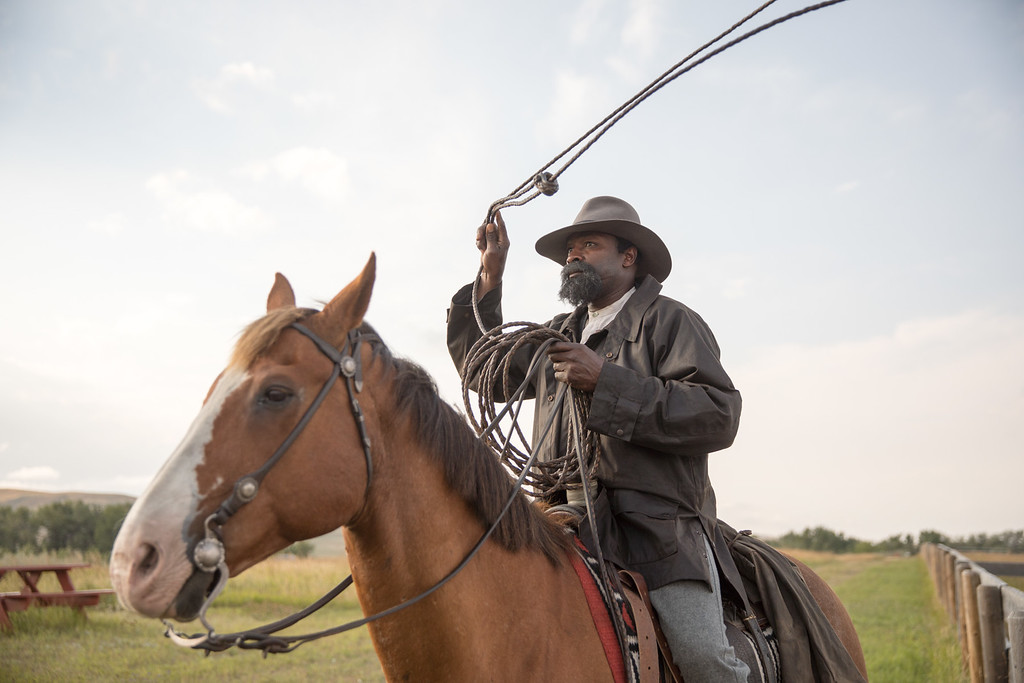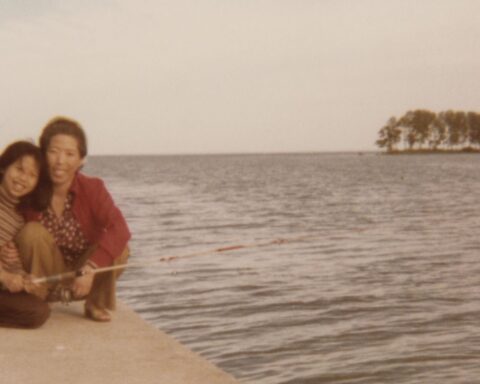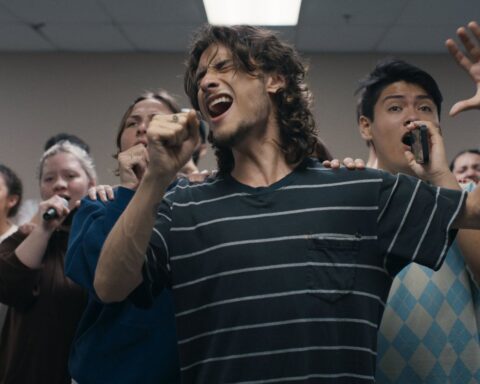John Ware Reclaimed
(Canada, 71 min.)
Dir. Cheryl Foggo
The mythology of John Ware is bigger than the man himself. Although buildings, creeks and more carry his name, the famed Black cowboy has gone unnoticed outside of Alberta. As director Cheryl Foggo narrates early in her documentary John Ware Reclaimed, he is “one of those famous people no one has ever heard of.”
Foggo is a native of Alberta who embraced cowboy culture at a young age but even she had not heard of Ware for a good portion of her youth. Despite pioneering irrigation in Southern Alberta, Ware’s legacy was not taught in schools. Furthermore, all the celebrated cowboys that were featured on television and film were white. It was not until Foggo’s brother Richard stumbled upon a plaque about the cowboy at a local museum that her eyes were opened to the important contributions Black cowboys made in Canada.
This discovery eventually led Foggo to both conduct extensive research on Ware’s history and embark in creative ways to bring her findings to life. Creating the play John Ware Reimagined, which spun out of a presentation she made to commemorate the 100th Calgary Stampede, Foggo wanted to sculpt a new narrative that was different from the one that dictated the image of Ware for decades. A tale that was primarily shaped by Grant MacEwan’s popular book John Ware’s Cow Country.
MacEwan’s book offered a romanticized version of Ware’s life. As Foggo’s film shows, the text celebrated Ware’s journey from being enslaved in the American South to becoming a successful Canadian rancher through a distinctly white lens. It conveyed many derogatory stereotypes commonly associated with Black people, and often made the cowboy seem more heroic beast than man. Not only did MacEwan present Ware as the only Black cowboy in the region—ignoring the Black migration of 1910, in which 1500 African-Americans fled terrorism in the south when their homes and business were bombed and burned—but also downplayed the racism that he would have experienced at every turn.
While Canada has often portrayed itself as a racially harmonious land that embraces diversity, the newspaper clippings that Foggo incorporates in the film tell a different story. John Ware Reclaimed shatters this notion by throwing bricks of truth through the country’s saintly stained glassed windows. Ware’s success did not exclude him or his children from the harsh realities that come with having Black skin. In paralleling Ware’s life with her own experiences growing up in Alberta, Foggo constructs a compelling timeline that shows how the anti-Black sentiment of Ware’s day persists, just in a different form, to this day. Regardless if one is a bearded Black rancher in spurs or a Black child living in the suburbs, navigating predominately white spaces has always been challenging.
Part of the challenge comes from the fact that one rarely gets to see images of Black individuals that have previously existed in these spaces. One of John Ware Reclaimed’s strengths is the way it not only humanizes Ware, presenting him as both a skilled rancher and loving family man to his wife Mildred Jane Lewis and their six children, but also highlights the various Black cowboys who have been pushed into the shadows of history. As if raising the houselights to reveal the numerous individuals standing on stage besides Ware’s spotlight, Foggo paints a vivid picture of a thriving Black cowboy community often left out of the textbooks.
Foggo’s cinematic canvas effectively brings this portrait to life through the uses of animation, archival footage and re-enactments. Pulling compelling interviews with authors and scholars, including Bertrand Bickersteth, David Breen and The Book of Negroes author Lawrence Hill to name a few, the film skillfully dismantles many of the misconceptions about Ware. This is further enhanced by Foggo’s decision to incorporate cast members of her play into the documentary. They not only read quotes from those who knew Ware but also provide songs that give the entire production a personal feel.
A deeply personal tale for Foggo on several levels, the director is not above admitting her own biases in constructing the film. She is aware that her own proximity to the subject matter impacts her perception of Ware and how she crafts the film. This inner conflict is most evident in the latter, and arguably weakest, sections of the film when she sets out on a new project. Unfortunately, the sequence of events surrounding this venture are not as compelling as what came before it in the film. While uncovering even the smallest detail might be intriguing to those well-versed in all things Ware, it does not ignite the same sense of wonder to newcomers who are still on chapter one of the cinematic book of his life.
Thankfully, there is plenty for both the uninitiated and those who thought they knew the whole story to take away from the documentary. In deconstructing the various mythologies surround John Ware, including his interaction with members of a nearby Indigenous community, Foggo succeeds in providing a rich context that makes his numerous accomplishments seem even more impressive. John Ware Reclaimed is an engaging and insightful film that brings Ware’s legacy to the forefront—where it should have been in the first place.
John Ware Reclaimed plays online and in-cinema at the Calgary International Film Festival from September 24 to October 4 and at the Vancouver International Film Festival until October 7.
John Ware Reclaimed (Promo Clip 01m29s) from NFB/marketing on Vimeo.










